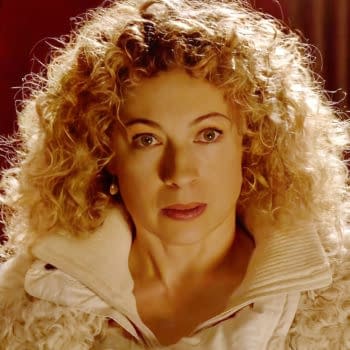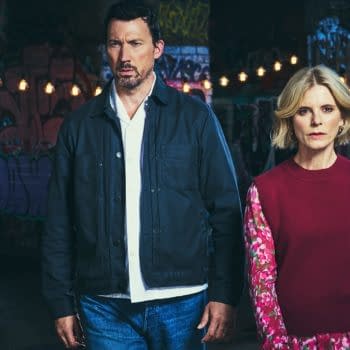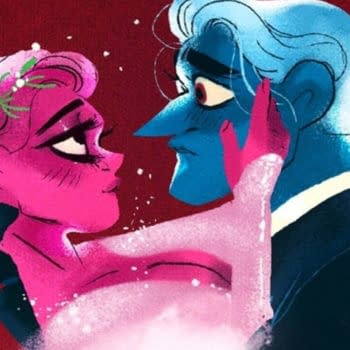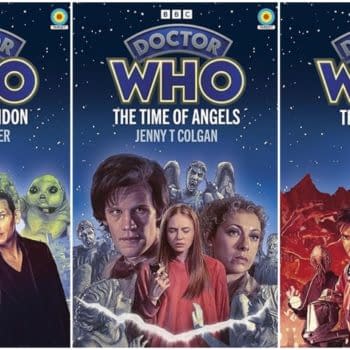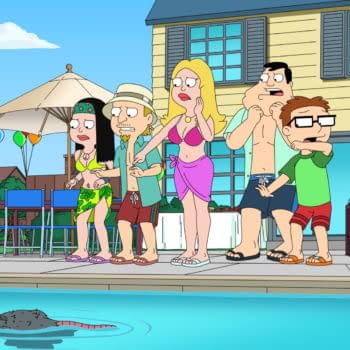Posted in: BBC, Doctor Who, TV | Tagged: bbc, doctor who, jodie whittaker, Star Trek Picard
Doctor Who: Going "Glass Half-Full" on Flux (Well, At Least We Tried)
I was fine with moving on from Doctor Who: Flux, but much like Michael Corleone in The Godfather III, the BBC keeps pulling me back in.
We were never fans of Doctor Who: Flux, arguably the worst season of the show in the modern era, so when the BBC insists on putting out a compilation video trying to find the best moments of "Flux," we just had to pick at that scab. Just to be clear? We've been more than happy to focus on the show's promising future. The BBC forced our hand (something we're quite sure Disney+ would've never done).
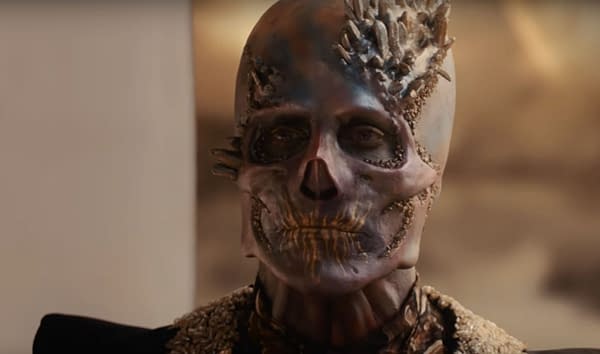
It would be easy to just go on a rant about everything bad about Doctor Who: Flux. The internet thrives on negativity. Let's remember that Chris Chibnall managed to wrestle an entire (albeit shortened) season of Doctor Who out of the Pandemic and Lockdown under extremely difficult circumstances. The BBC considered cancelling the show until after the Pandemic was over. However, the results were very mixed.
Doctor Who: Flux Sucked the Drama Out of Its Own Stories
Doctor Who: Flux featured one alien giant fluffy dog character representing his entire species, which fails to convince us there are millions like him out there. The season featured the worst, most boring villains the show was ever saddled with. They're so boring we can't even remember their names and can't be bothered to look them up. They had a mildly interesting skull-faced look just in case we can't tell they're villains, but they did nothing at all other than stand around spouting exposition and then waving their hands for CGI to happen. They embody everything bad about the whole season. The Sonatarans fighting in the Crimean War was originally planned as a standalone story, and it shows because it's an adequate Doctor Who story. Chibnall makes The Weeping Angels not scary by turning them into a puzzle instead of sinister monsters with powers that are made up on the fly. The Doctor (Jodie Whittaker) confronting her abusive adopted mother should have been a more emotionally-charged exchange about abusive parents but was just a boring exposition dump about the plot.
The worst part of Doctor Who: Flux was how Chibnall's scripts had characters stand around explaining the plot to each other while it was happening. The Doctor and her companions running around the TARDIS tell us the universe was getting wiped out when we can see the big CGI light show of planets getting destroyed sucks all the drama and tension out of the idea of the universe ending. Not to mention that it's just a light show of planets disappearing. It's not intense or dramatic. It's boring. We've seen this too many times before in previous episodes of Doctor Who and Marvel movies.
Doctor Who and Star Trek: Picard Suffer from The Curse of Boring Exposition
Doctor Who: Flux suffered from the same problems that the worst parts of Star Trek: Picard has. Despite the fan love and acclaim the final season of Star Trek: Picard received, it still had moments where characters stood around explaining the plot to each other, a plot they had literally been going through and already know. It's the worst kind of screenwriting and seems to be the Curse of Television Writing. Television writers can't seem to resist defaulting to characters speaking exposition. It's as if they're afraid the viewers are too dense or brain-dead to understand what's going on even after they've literally watched it. Either that or it's the television executives who insist on it. There is not a single character on television who can't speak fluent exposition, even the rare ones who never spoke it before. Doctor Who and Star Trek are especially notorious for exposition speak.
The Curse of Exposition might be the greatest enemy that Doctor Who and Star Trek face, one they have never defeated and keep coming back at the worst times. Why are we banging on about this again? Because we know beginning writers read this site, and this is all a lesson in "How Not to Write a TV Script."



